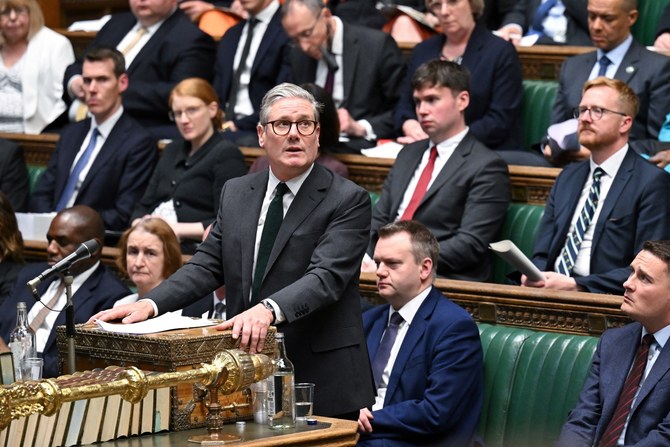
The energy sector in Egypt is a central topic of discussion across all levels of society. Politically, energy production is one of the most critical challenges facing the authorities due to its pervasive influence on nearly every aspect of life. On a popular level, frequent power outages caused by insufficient energy supplies have become a daily concern for Egyptians everywhere.
The crisis of repeated power outages, aimed at reducing loads and conserving energy, was a significant societal issue between 2012 and 2013 during the rule of the Muslim Brotherhood. However, this crisis also has a global context, as what happens in Egypt cannot be isolated from worldwide events, especially with changes such as climate fluctuations and ongoing wars.
Despite this, the energy crisis remains one of the most prominent challenges, or perhaps the most prominent challenge, for the new Egyptian government, which was formed last week by Prime Minister Dr. Mostafa Madbouly after a month of deliberations and research.
In the 1980s, Egypt primarily relied on fossil fuels, such as oil and natural gas, to generate electricity. This period saw significant challenges related to fuel supply and the provision of electric power to citizens and industries. The Egyptian government made great efforts to expand the country’s energy infrastructure by building new power plants and improving the efficiency of existing ones. There was also a focus on exploring new oil and gas fields to enhance local production and reduce dependence on imports.
In the 1990s, Egypt experienced a shift in the energy sector, with an increased focus on natural gas as a primary source for electricity generation. Several major gas fields were discovered, which contributed to enhancing energy supplies and improving the stability of the electrical system. Additionally, Egypt began implementing projects to improve the efficiency of energy use and reduce waste, which helped improve the performance of the electrical grid and meet the growing demand for energy. These efforts helped meet the needs of the growing population and industrial expansion, making the energy sector more sustainable and efficient.
This crisis also has a global context, as what happens in Egypt cannot be isolated from worldwide events
Dr. Abdellatif El-Menawy
In the years that followed, these installations lacked maintenance, leading to deterioration, and many of them went out of service. The period of political upheaval that began in 2011 exposed the real crisis, with those in power at the time, especially the Muslim Brotherhood, failing to address these deficiencies, focusing instead on their political projects and goals at the expense of the Egyptian people. The crisis worsened and frequent power outages became more severe in the last months of the Brotherhood’s rule, leading to the Egyptian people’s uprising on June 30, 2013, rejecting this style of governance.
After 2013 and the departure of the Brotherhood regime, the Egyptian state sought to address this significant crisis with all of its might. As the pillars of the state were consolidated and President Abdel Fattah El-Sisi assumed power, energy achievements began to follow. Advanced power stations were built and attention was paid to maintaining, repairing and increasing the efficiency of generation in some other plants. Thanks to these projects, Egypt achieved self-sufficiency in electricity in recent years and even announced on multiple occasions that it had started exporting electricity to neighboring countries. This shift is considered a significant achievement in light of the challenges the country faced in the past.
However, the positive situation in the energy and electricity sector in Egypt did not last long. The pandemic years caused the world to shut down. This was followed by the unclear and undefined Russian-Ukrainian war. Then came Oct. 7, with all its pains, blood and crises in the region and the world. The result of all these events was a rise in global gas prices.
With this increase, Egypt found itself in a difficult position. Gas production in the country, especially after the discovery of giant fields in the Eastern Mediterranean, is one of the state’s most important revenue sources. The rise in global gas prices put two difficult choices in front of the government: either export the gas to obtain hard currency and strengthen the national economy or use it domestically to ensure continued electricity provision and prevent power outages.
This challenge has been one of the most prominent issues facing the Egyptian government. Opting to export the gas would generate financial revenues that help support the economy and achieve financial stability, especially in a challenging global economic situation. However, this option comes at the expense of local gas consumers and, consequently, electricity, thus bringing back power outages and their repercussions, such as halting some industries and closing some factories, as seen recently.
Continuous electricity provision is one of the fundamental factors for achieving popular satisfaction and social stability
Dr. Abdellatif El-Menawy
The government tried to achieve some balance between export revenues and maintaining local market stability, but it appears it was unable to do so due to increasing local consumption.
This crisis has some serious dimensions. Socially, providing continuous electricity is necessary to improve citizens’ quality of life. The Egyptian people have suffered for long periods from power outages and continuous electricity provision is one of the fundamental factors for achieving popular satisfaction and social stability. Thus, the issue of gas shortages and, consequently, power outages increases public anger.
Politically, resolving the energy crisis after years of instability was a political asset for the Egyptian state. Any regression in electricity provision could negatively affect the government’s popularity and expose it to severe criticism from citizens.
Given the multiple dimensions of the crisis, affecting various sectors, the potential solutions are also multiple, requiring the cooperation of all sectors. The Egyptian government needs to adopt a balanced strategy that considers all the mentioned dimensions, including improving the efficiency of energy use in different sectors, encouraging the use of renewable energy sources such as solar and wind power, and developing new techniques for more efficient gas extraction. Enhancing cooperation with neighboring countries to exchange energy and achieve greater stability in the local market is also crucial.
These are solutions based on my readings of similar crises that countries worldwide have experienced. However, reality is undoubtedly different. The current period, with the assumption of a new government in Egypt, will undoubtedly witness attempts to solve the crisis, but all we can do is help with opinions and conserve consumption.
Dr. Abdellatif El-Menawy is a critically acclaimed multimedia journalist, writer and columnist who has covered war zones and conflicts worldwide.
X: @ALMenawy












